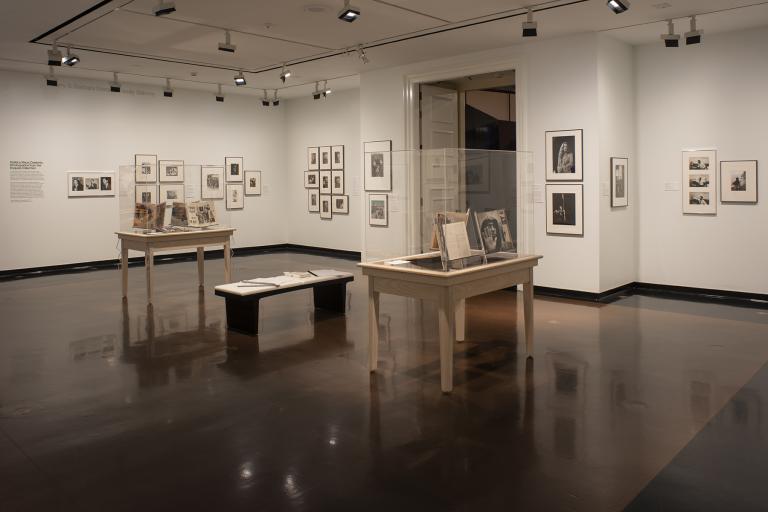"Mealymouth of the Year: Cassius Clay", Carl Fischer
Artwork Overview
Carl Fischer, artist
1924–2023
"Mealymouth of the Year: Cassius Clay",
1966
Portfolio/Series title: "Esquire's Sixth Annual Dubious Achievement Awards," published in Esquire magazine, January 1967
Where object was made: United States
Material/technique: gelatin silver print
Dimensions:
Image Dimensions Height/Width (Height x Width): 16.6 x 11.4 cm
Image Dimensions Height/Width (Height x Width): 6 9/16 x 4 1/2 in
Sheet/Paper Dimensions (Height x Width): 17.8 x 12.7 cm
Sheet/Paper Dimensions (Height x Width): 7 x 5 in
Mat Dimensions (Height x Width): 19 x 14 in
Image Dimensions Height/Width (Height x Width): 16.6 x 11.4 cm
Image Dimensions Height/Width (Height x Width): 6 9/16 x 4 1/2 in
Sheet/Paper Dimensions (Height x Width): 17.8 x 12.7 cm
Sheet/Paper Dimensions (Height x Width): 7 x 5 in
Mat Dimensions (Height x Width): 19 x 14 in
Credit line: Gift of Esquire, Inc.
Accession number: 1980.1079
Not on display
If you wish to reproduce this image, please submit an image request


